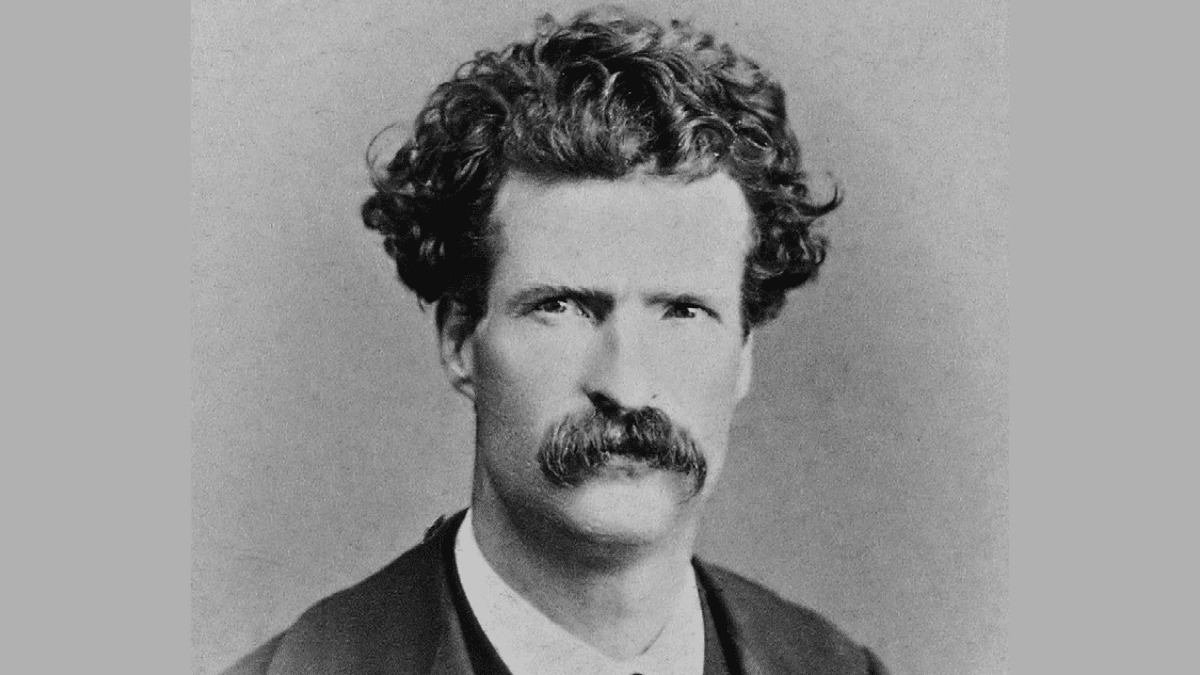
Mark Twain, born Samuel Langhorne Clemens, is a name that resonates with readers worldwide. Known for his sharp wit and keen observations, Twain's works have left an indelible mark on American literature. But who was the man behind the pen? Did you know that Twain was not just an author but also a riverboat pilot, journalist, and inventor? His life was as colorful as his characters, filled with adventures that spanned continents. From his humble beginnings in Missouri to his travels across Europe and the Middle East, Twain's experiences shaped his writing in profound ways. Curious about the lesser-known aspects of his life? Let's dive into 27 fascinating facts about Mark Twain that will give you a deeper appreciation for this literary giant.
Early Life and Background
Mark Twain, born Samuel Langhorne Clemens, is one of America's most beloved authors. His life was filled with fascinating events and experiences that shaped his writing.
- Born on November 30, 1835, in Florida, Missouri, Twain was the sixth of seven children.
- His birth coincided with Halley's Comet, a celestial event that would also mark his death in 1910.
- At age 4, his family moved to Hannibal, Missouri, a town that inspired the fictional St. Petersburg in his famous novels.
- Twain's father, John Marshall Clemens, was a judge and storekeeper who struggled financially, influencing Twain's views on wealth and poverty.
Career Beginnings
Twain's career took many twists and turns before he became a celebrated author. His early jobs and experiences provided rich material for his stories.
- At 11, Twain left school to work as a printer's apprentice after his father's death.
- He later worked as a typesetter and contributed articles to his brother Orion's newspaper, the Hannibal Journal.
- Twain's pen name, "Mark Twain," is a riverboat term meaning two fathoms deep, a safe depth for navigation.
- He became a licensed river pilot in 1859, a job he loved but had to abandon due to the Civil War.
Literary Achievements
Twain's literary works have left an indelible mark on American literature. His novels, short stories, and essays continue to be read and studied worldwide.
- "The Celebrated Jumping Frog of Calaveras County," published in 1865, was Twain's first major success.
- His travel book, "The Innocents Abroad," published in 1869, humorously chronicled his travels in Europe and the Holy Land.
- "The Adventures of Tom Sawyer," published in 1876, was inspired by his childhood in Hannibal.
- "Adventures of Huckleberry Finn," published in 1884, is often considered the Great American Novel for its portrayal of pre-Civil War society.
Personal Life
Twain's personal life was as colorful as his writing. His relationships and experiences deeply influenced his work.
- Twain married Olivia Langdon in 1870, and they had four children: Langdon, Susy, Clara, and Jean.
- The couple's home in Hartford, Connecticut, is now a museum dedicated to Twain's life and work.
- Twain was known for his wit and humor, often making sharp social commentaries through his writing.
- Despite his success, Twain faced financial difficulties due to poor investments, including a failed typesetting machine.
Later Years and Legacy
Twain's later years were marked by personal tragedy and continued literary success. His legacy endures through his timeless works and influence on American culture.
- Twain's daughter Susy died of meningitis in 1896, a loss that deeply affected him.
- In 1904, his wife Olivia passed away after a long illness.
- Twain received an honorary doctorate from Oxford University in 1907, recognizing his contributions to literature.
- He was a close friend of inventor Nikola Tesla, often visiting Tesla's laboratory.
Fun and Lesser-Known Facts
Beyond his well-known achievements, Twain's life was filled with quirky and lesser-known facts that add to his mystique.
- Twain was an avid smoker, reportedly smoking 20 cigars a day.
- He had a deep interest in parapsychology and was a member of the Society for Psychical Research.
- Twain patented three inventions: a self-pasting scrapbook, a history trivia game, and an adjustable garment strap.
- He was a staunch supporter of women's rights and an early advocate for civil rights.
- Twain once served as a Confederate soldier for two weeks before deserting.
- He was a prolific speaker, known for his engaging and humorous lectures.
- Twain's autobiography, published posthumously in 2010, became a bestseller, proving his enduring popularity.
Timeless Legacy of Mark Twain
Mark Twain's impact on literature and culture remains strong. His works, like "The Adventures of Tom Sawyer" and "Adventures of Huckleberry Finn," continue to inspire readers worldwide. Twain's sharp wit and keen observations of society offer timeless insights into human nature. His life, filled with adventure and curiosity, mirrors the characters he created. From his humble beginnings in Missouri to becoming a celebrated author, Twain's journey is a testament to his talent and perseverance. His quotes, often humorous and thought-provoking, still resonate today. Twain's legacy isn't just in his books but in the way he challenged societal norms and encouraged critical thinking. As we reflect on these 27 facts, it's clear that Mark Twain's contributions to literature and society are invaluable, ensuring his place as a literary giant for generations to come.
Was this page helpful?
Our commitment to delivering trustworthy and engaging content is at the heart of what we do. Each fact on our site is contributed by real users like you, bringing a wealth of diverse insights and information. To ensure the highest standards of accuracy and reliability, our dedicated editors meticulously review each submission. This process guarantees that the facts we share are not only fascinating but also credible. Trust in our commitment to quality and authenticity as you explore and learn with us.


